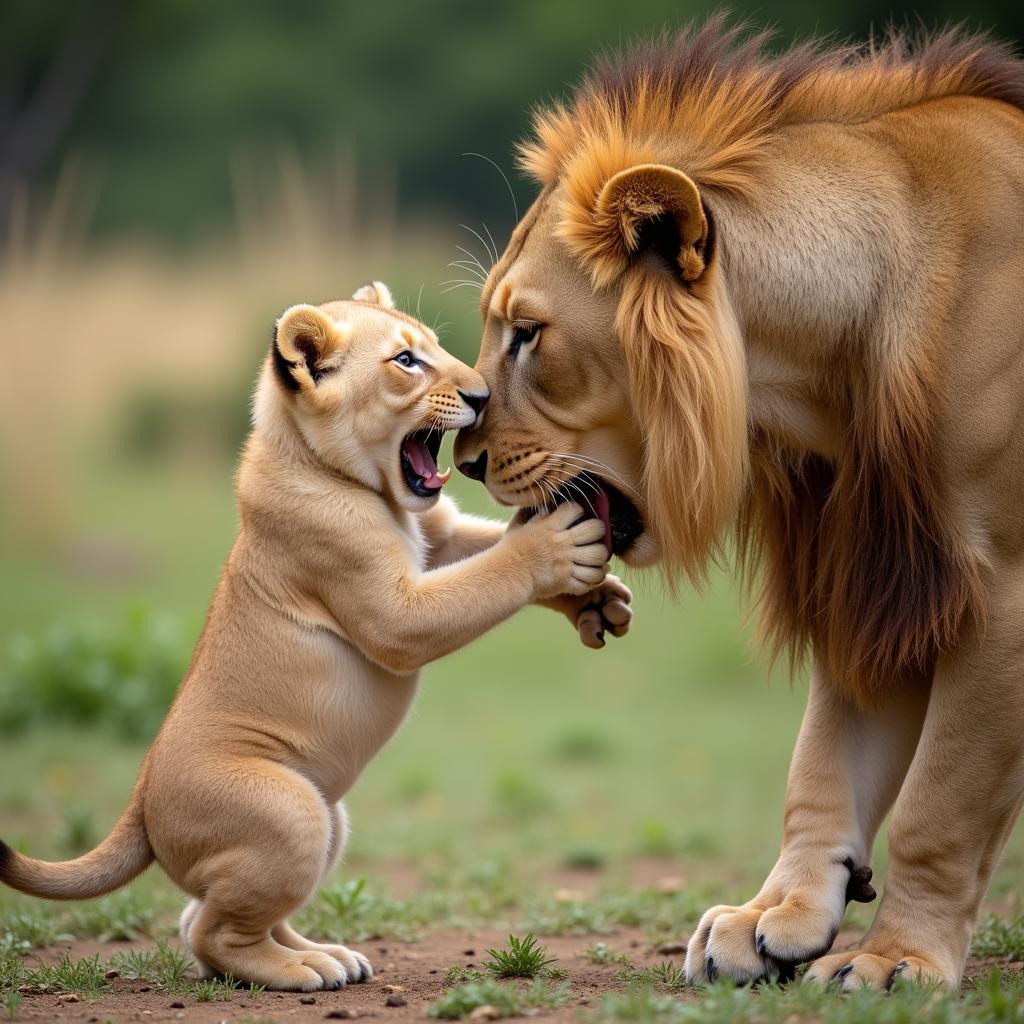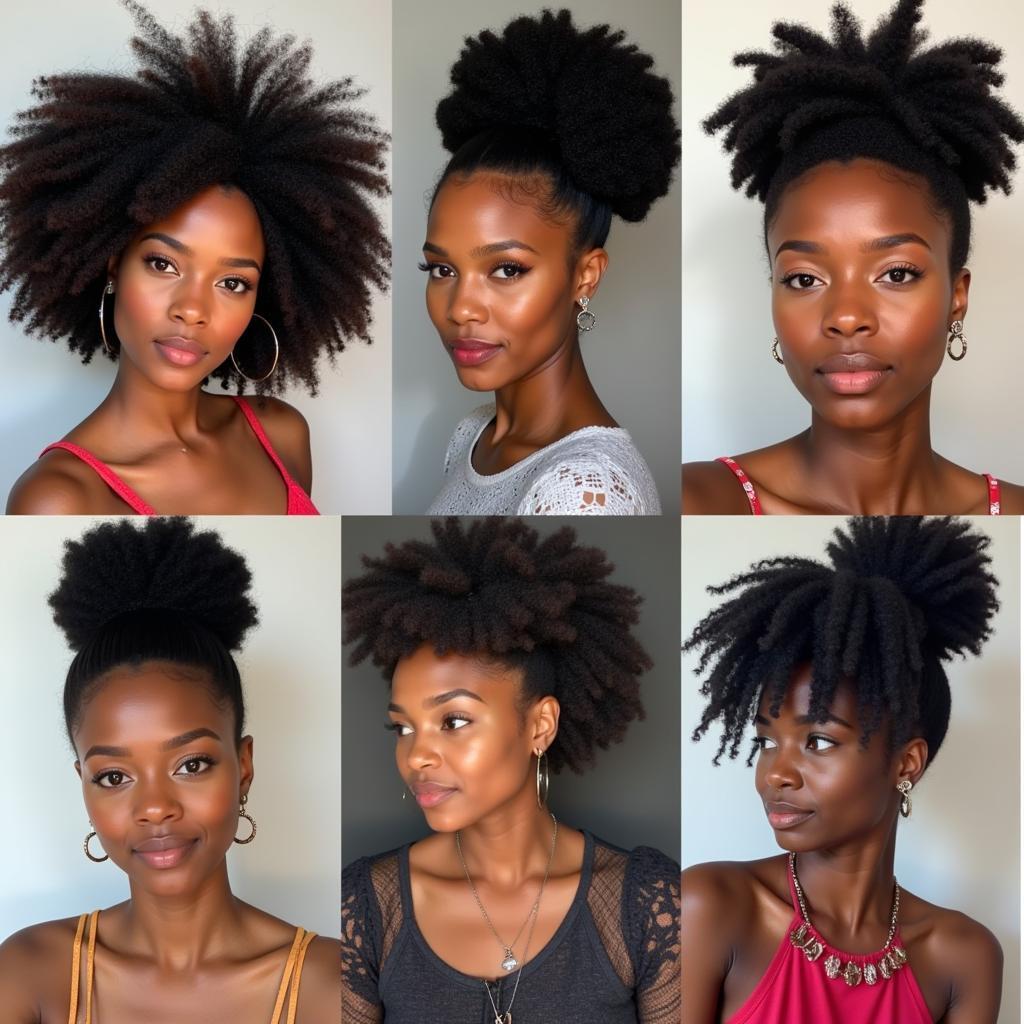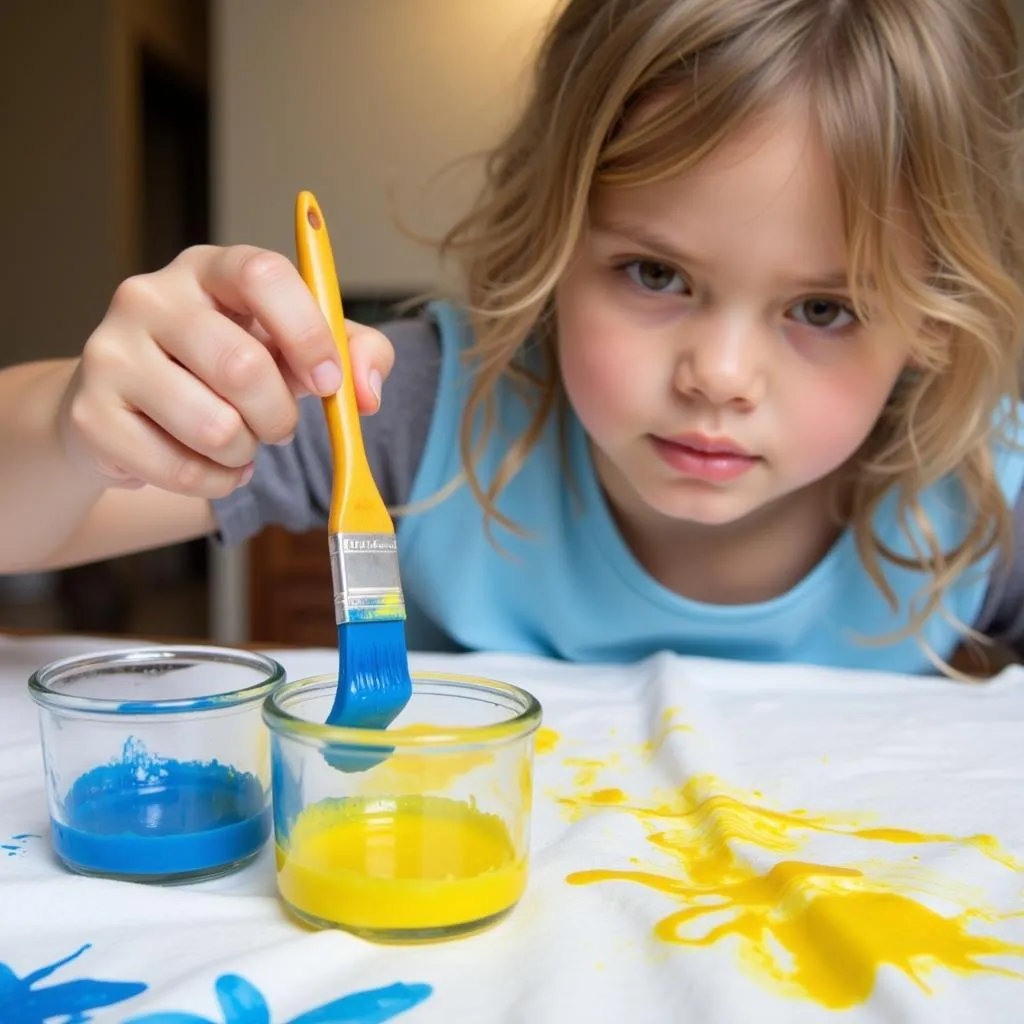Majestic Male African Lion Names
The African savanna echoes with the roar of lions, especially the commanding presence of its male rulers. These magnificent creatures, with their flowing manes and booming voices, are often given names reflecting their strength and majesty. If you’re curious about the world of African lion names, particularly those given to males, prepare to be fascinated by the meanings and stories behind these powerful monikers.
 African Lion Roaring
African Lion Roaring
Unraveling the Significance of African Lion Names
In many African cultures, names hold deep meaning. They’re not merely identifiers but reflections of character, aspirations, or even physical attributes. This is especially true for animals like lions, which hold significant cultural and spiritual weight. Male African lion names often embody qualities such as:
- Strength: Names like Jabari (Swahili for “brave”) or Mandla (Zulu for “strong”) directly reference a lion’s physical power and dominance.
- Courage: The name Leo (Latin for “lion”) itself symbolizes courage, a trait often attributed to these big cats. Other names like Shujaa (Swahili for “hero”) also fall into this category.
- Leadership: As the heads of their prides, male lions are natural leaders. Names like Aslan (Turkish for “lion,” made famous in the Chronicles of Narnia series) and Zuko (meaning “leader” in some African cultures) highlight this leadership quality.
From the Wild to Human Language: How Male Lions Get Their Names
In the wild, lions don’t use names as humans do. However, researchers and conservationists often give them names for identification and tracking purposes. These names might be based on:
- Physical Characteristics: A lion with a particularly dark mane might be called Duma (Swahili for “cheetah,” referring to the black markings on a cheetah’s coat), while one with a distinctive scar could be named Kovu (meaning “scar” in Swahili, as seen in Disney’s “The Lion King”).
- Personality Traits: A particularly playful lion might be called Furaha (Swahili for “joy”), while a more reserved one could be named Kimya (Swahili for “silence”).
- Location: Lions are sometimes named after the region they inhabit. For example, a lion residing in the Serengeti might be named Seren or Geti.
Beyond the Roar: The Cultural Significance of Lions in Africa
Lions have been deeply intertwined with African culture for millennia. They appear in:
- Mythology: Many African cultures have myths and legends featuring lions. For example, in Egyptian mythology, the goddess Sekhmet is often depicted with a lioness head, representing her power and ferocity.
- Art: From ancient rock paintings to contemporary sculptures, lions are prevalent subjects in African art, signifying strength, royalty, and wisdom.
- Proverbs and Sayings: Lions frequently appear in African proverbs and sayings. For instance, the proverb “A lion does not turn around when a small dog barks” emphasizes courage and ignoring insignificant distractions.
 Playful African Lion Cub
Playful African Lion Cub
Frequently Asked Questions about African Lion Names
What is the most common African lion name?
While there isn’t one definitive “most common” name, names like Simba (Swahili for “lion”), Duma, and Jabari are frequently used in popular culture and conservation efforts.
Do female African lions have different names?
Yes, female lion names often reflect different qualities than male names. They might emphasize grace, nurturing, or protectiveness, such as the name Zuri (Swahili for “beautiful”) or Nala (meaning “gift” in Swahili).
Can you suggest some unique African lion names?
Certainly! Here are a few more unique options:
- Thabo: (meaning “joy” in Sotho)
- Tau: (meaning “lion” in Tswana)
- Adofo: (meaning “lion” in Akan)
Are there resources for learning more about African languages and animal names?
Absolutely! Many online dictionaries and resources are dedicated to African languages. You can also find books and websites specializing in animal names and their meanings.
If you need assistance, please don’t hesitate to contact us. You can reach our 24/7 customer service team via Phone: +255768904061, Email: kaka.mag@gmail.com or visit our office at Mbarali DC Mawindi, Kangaga, Tanzania. We’re always here to help!



